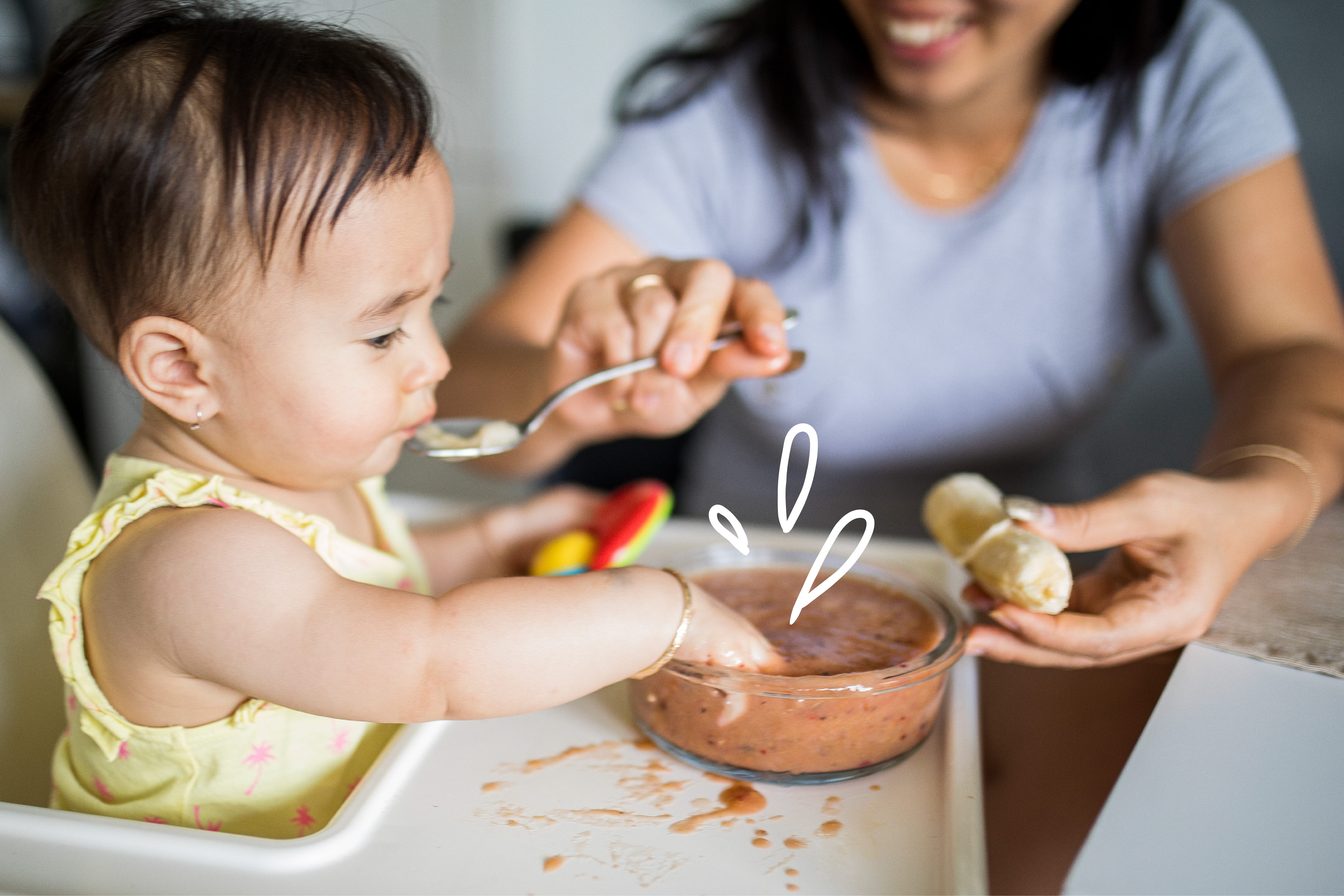4 Unexpected Foods Your Baby Can Actually Eat

Does the idea of eating mashed peas and bananas for every meal all week long sound terribly boring to you? Chances are, your baby feels the same way. Babies love trying new foods. Here are four fun options to introduce to your baby that are tasty and packed with important nutrition. (Want to know more about what to feed your baby and when? We’ve got you covered.)
3. Can babies eat yogurt?
Yes, they can. Because babies aren’t supposed to drink milk before their first birthday, many parents are surprised to discover that they have the green light to start giving their infant yogurt by the six-month mark. The live cultures (probiotics) that ferment milk into yogurt help break down the lactose and protein, making yogurt far easier for babies to digest.
4. Can babies eat spices and herbs?




